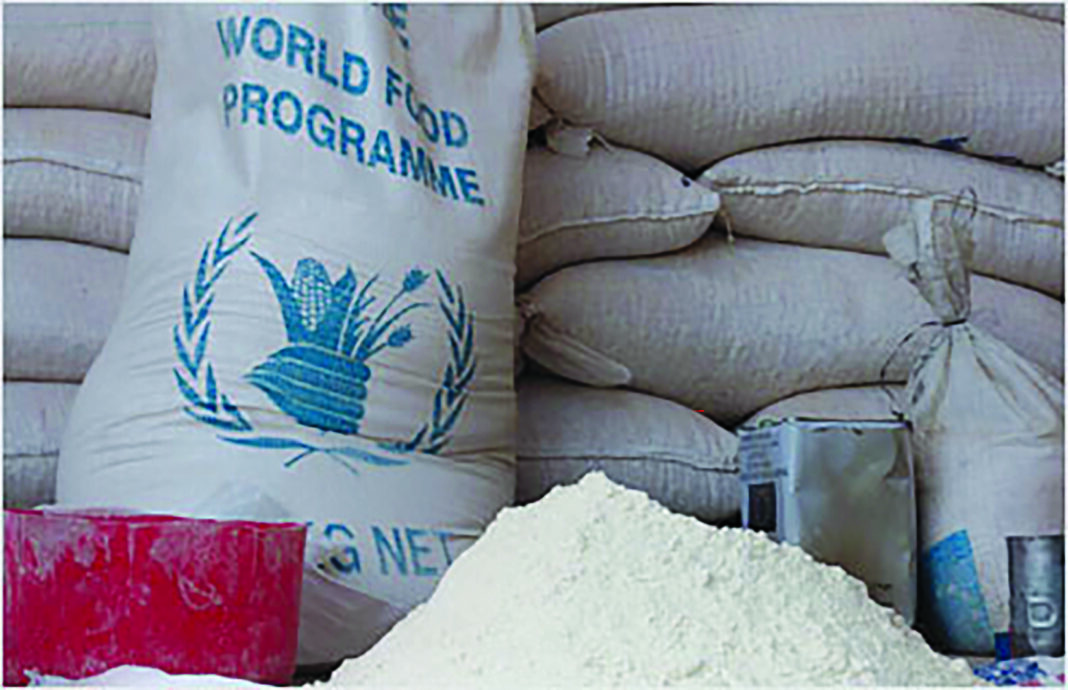Lerato Matheka
In the heart of Lesotho, where the mountains echo the resilience of Basotho, the World Food Programme (WFP) stands as a steadfast ally in the fight against hunger and adversity.
WFP’s impact has reverberated across the country reaching over 108,000 food-insecure individuals with vital assistance.
From providing food aid to drought-affected districts, supporting smallholder farmers in building resilience to climate shocks, to nourishing over 45,000 children through school feeding programs, WFP’s initiatives have touched the lives of countless Basotho.
The organisation’s annual country report for 2019 to 2023 highlights the WFP’s tireless efforts that have left an indelible mark on Lesotho’s landscape, offering sustenance, empowerment, and hope to those in need.
WFP, according to its report has played an instrumental role since the launch of its Country Strategic Plan (CSP) in 2019.
“In 2023, WFP continued to implement its country strategic plan (CSP) in Lesotho to address the deep-rooted food insecurity and malnutrition in the country,” it notes, citing contributing to achieving Sustainable Development Goal (SDG) 2 (Zero Hunger) and 17 (Partnerships for the Goals), the CSP covers five strategic outcomes: crisis response, school feeding and emergency preparedness, nutrition, resilience building support to smallholder farmers facing climate shocks, and service delivery.
The report highlights that in the same year, WFP reached 108,169 food-insecure people through activities implemented under these broad strategic outcomes.
“WFP assisted over 32,000 people in five drought-affected districts with food assistance and provided cash-based transfers to 14,783 people who participated in the Food Assistance for Assets (FFA) intervention aimed at improving the adaptive, absorptive and transformative capacities of vulnerable people to climate shocks.”
The organisation continued to play the leading role as Lesotho’s largest provider of school meals at the pre-primary level, supporting more than 45,200 children in 2,500 schools, including with home-grown school feeding.
The report indicates that Lesotho continued to face an unprecedented food crisis in 2023, driven by a combination of multiple shocks, including hailstorms, pest invasions, heavy rains, and high food prices.
It reveals that in the face of food insecurity, WFP faced significant funding constraints and could not launch the lean season support.
“Recognising the deteriorating situation and faced with inadequate resources, WFP supported the Government to activate anticipatory action to mitigate the effects of the anticipated El Nino.
“Since anticipatory action plan activation, WFP reached around 60,000 people through cash-based transfers, provision of agricultural inputs, and dissemination of early warning and early action messages,” the report notes, adding the anticipatory action activities played a key role in addressing food needs of vulnerable people during the lean season in 2023.
In the height of WFP’s efforts, the September 2023 Integrated Food Security Phase Classification (IPC) report highlights there are no more people experiencing emergency conditions thanks to the assistance provided by WFP and partners, however, humanitarian aid has not been adequate to reverse the deteriorating hunger levels in Lesotho.
According to the IPC report, the number of people requiring emergency food and nutrition assistance remains high, with 58,700 people in rural and urban areas experiencing high levels of food insecurity (IPC Phase 3) between October 2023 and March 2024.
“With the peak of the lean season (January-March 2024) still ahead, this level of food insecurity is cause for concern,” the IPC says.
Strengthened Partnerships
WFP reported that it strengthened its partnerships with the Government, local communities, and other UN agencies on food distributions, nutrition programming, capacity strengthening, and emergency preparedness, helping to advance policies and progress towards the SDGs.
“This included working with the United Nations Environment Programme (UNEP) to purchase and install a High-Performance Computer system for the Lesotho Meteorological Services to enhance weather forecasting.”
“WFP collaborated with the Ministry of Police (Child and Gender Protection Unit), the Ministry of Agriculture, Food Security and Nutrition (nutrition department), and the Ministry of Health to undertake interpersonal social behaviour change (SBC) sensitisation during distributions and at Food Assistance for Assets project sites with the objective of improving women, men, boys, and girls’ knowledge on good nutrition practices, HIV awareness, sexual reproductive health, human rights, gender-based violence, and climate change,” it reports.
In the face of unprecedented challenges, WFP has demonstrated agility and foresight, implementing anticipatory action plans to mitigate the effects of looming crises.
Through partnerships with the government and other stakeholders, WFP has mobilised resources and support to ensure that no Basotho is left behind during times of need.
Furthermore, WFP’s holistic approach to addressing hunger goes beyond mere sustenance.
By integrating nutrition education, health awareness, and empowerment programs into its interventions, WFP has empowered communities to break the cycle of poverty and build a brighter for future generations.
In the words of their annual country report, “The journey towards a hunger-free Lesotho is not without its challenges, but with collective determination and unwavering commitment, we can overcome them together.”




